
THE DALAI LAMA @ MIT 2009
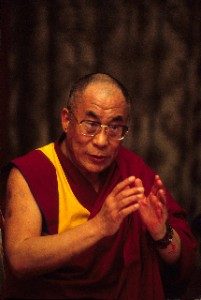 A Talk by His Holiness the Dalai Lama
A Talk by His Holiness the Dalai Lama
Thursday, April 30th 2009 @ 2:00PM
Venue: Kresge Auditorium, MIT
Web Simulcast Venue (Overflow): Room 10-250
Talk is also available on MIT Cable.
![benefitconcert_poster1[1]](http://thecenter.mit.edu/wp-content/uploads/2012/05/benefitconcert_poster11-234x300.jpg) Through his operas, his symphonies, his compositions for his own ensemble, and his wide-ranging collaborations with artists ranging from Twyla Tharp to Allen Ginsberg, Woody Allen to David Bowie, Philip Glass has had an extraordinary and unprecedented impact upon the musical and intellectual life of his times.
Through his operas, his symphonies, his compositions for his own ensemble, and his wide-ranging collaborations with artists ranging from Twyla Tharp to Allen Ginsberg, Woody Allen to David Bowie, Philip Glass has had an extraordinary and unprecedented impact upon the musical and intellectual life of his times.
The operas Einstein on the Beach, Satyagraha Akhnaten and The Voyage, among many others play throughout the world’s leading houses, and rarely to an empty seat. Glass has written music for experimental theater and for Academy Award-winning motion pictures such as The Hours and Martin Scorsese’s Kundun, while Koyaanisqatsi, his initial filmic landscape with Godfrey Reggio and the Philip Glass Ensemble, may be the most radical and influential mating of sound and vision since Fantasia. His associations, personal and professional, with leading rock, pop and world music artists date back to the 1960s, including the beginning of his collaborative relationship with artist Robert Wilson. Indeed, Glass is the first composer to win a wide, multi-generational audience in the opera house, the concert hall, the dance world, in film and in popular music — simultaneously.
He was born in 1937 and grew up in Baltimore. He studied at the University of Chicago, the Juilliard School and in Aspen with Darius Milhaud. Finding himself dissatisfied with much of what then passed for modern music, he moved to Europe, where he studied with the legendary pedagogue Nadia Boulanger (who also taught Aaron Copland , Virgil Thomson and Quincy Jones) and worked closely with the sitar virtuoso and composer Ravi Shankar. He returned to New York in 1967 and formed the Philip Glass Ensemble seven musicians playing keyboards and a variety of woodwinds, amplified and fed through a mixer.
The new musical style that Glass was evolving was eventually dubbed minimalism. Glass himself never liked the term and preferred to speak of himself as a composer of music with repetitive structures. Much of his early work was based on the extended reiteration of brief, elegant melodic fragments that wove in and out of an aural tapestry. Or, to put it another way, it immersed a listener in a sort of sonic weather that twists, turns, surrounds, develops.
There has been nothing minimalist about his output. In the past 25 years, Glass has composed more than twenty operas, large and small; eight symphonies (with others already on the way); two piano concertos and concertos for violin, piano, timpani, and saxophone quartet and orchestra; soundtracks to films ranging from new scores for the stylized classics of Jean Cocteau to Errol Morris documentary about former defense secretary Robert McNamara; string quartets; a growing body of work for solo piano and organ. He has collaborated with Paul Simon, Linda Ronstadt, Yo-Yo Ma, and Doris Lessing, among many others. He presents lectures, workshops, and solo keyboard performances around the world, and continues to appear regularly with the Philip Glass Ensemble.
![goleman[1]](http://thecenter.mit.edu/wp-content/uploads/2012/05/goleman1-150x229.jpg)
Daniel Goleman is an internationally known psychologist who lectures frequently to professional groups, business audiences, and on college campuses. Working as a science journalist, Goleman reported on the brain and behavioral sciences for The New York Times for many years. His 1995 book, Emotional Intelligence (Bantam Books) was on The New York Times bestseller list for a year-and-a-half; with more than 5,000,000 copies in print worldwide in 30 languages, and has been a best seller in many countries. Goleman’s latest book is Ecological Intelligence: How Knowing the Hidden Impacts of What We Buy Can Change Everything. The book argues that new information technologies will create “radical transparency,” allowing us to know the environmental, health, and social consequences of what we buy. As shoppers use point-of-purchase ecological comparisons to guide their purchases, market share will shift to support steady, incremental upgrades in how products are made – changing every thing for the better. Social Intelligence: The New Science of Human Relationships, was published in 2006. Social intelligence, the interpersonal part of emotional intelligence, can now be understood in terms of recent findings from neuroscience. Goleman’s book describes the many implications of this new science, including for altruism, parenting, love, health, learning and leadership.
![davidson[1]](http://thecenter.mit.edu/wp-content/uploads/2012/05/davidson1-150x186.jpg)
Richard J. Davidson is the Director of the Laboratory for Affective Neuroscience and the W.M. Keck Laboratory for Functional Brain Imaging and Behavior at the University of Wisconsin at Madison. He was educated at New York University and Harvard University, where he received his B.A. and Ph.D., respectively, in psychology. Over the course of his research career he has focused on the relationship between brain and emotion. He is currently the William James Professor and Vilas Research Professor of Psychology and Psychiatry at the University of Wisconsin. He is co-author or editor of thirteen books, including Visions of Compassion: Western Scientists and Tibetan Buddhists Examine Human Nature and The Handbook of Affective Science. Professor Davidson has also written more than 250 chapters and journal articles. He is the recipient of numerous awards for his work, including the Research Scientist Award from the National Institute of Mental Health, the Distinguished Scientific Contribution Award from the American Psychological Association and election to the American Academy of Arts and Sciences. He was a member of the Board of Scientific Counselors of the National Institute of Mental Health. He was named one of the 100 most influential people in the world by Time Magazine in May, 2006 and in November, 2006 he received the first Mani Bhaumik Award from UCLA for advances in the understanding of the brain and the conscious mind in healing. In 1992, as a follow-up from previous Mind and Life meetings, he was a member of a scientific team doing neuroscientific investigations of exceptional mental abilities in advanced Tibetan monks.
Co-sponsors: MIT Brain and Cognitive Science
Click here for more information and viewing schedule.
Sponsored by MIT Prajnopaya-Buddhist Community at MIT
![keating1[1]](http://thecenter.mit.edu/wp-content/uploads/2012/05/keating11-150x112.jpg)
Fr. Thomas Keating, O.C.S.O. (born 1923) is a Trappist monk (Order of Cistercians of the Strict Observance) and priest. He was born in New York City, and attended Deerfield Academy, Yale University, and Fordham University, graduating in December 1943. He is a founder of the Centering Prayer movement and of Contemplative Outreach, Ltd.
Keating entered the Cistercian Order in Valley Falls, Rhode Island in January, 1944. He was appointed Superior of St. Benedict’s Monastery, Snowmass, Colorado in 1958, and was elected abbot of St. Joseph’s Abbey, Spencer, Massachusetts in 1961. He returned to Snowmass after retiring as abbot of Spencer in 1981, where he established a program of ten-day intensive retreats in the practice of Centering Prayer, a contemporary form of the Christian contemplative tradition.
He is one of three architects of Centering Prayer, a contemporary method of contemplative prayer, that emerged from St. Joseph’s Abbey in 1975. Frs. William Menninger and Basil Pennington, also Cistercian monks, were the other architects. In 1984, along with Gustave Reininger and Edward Bednar, he co-founded Contemplative Outreach, Ltd., an international, ecumenical spiritual network that teaches the practice of Centering Prayer and Lectio Divina, a method of prayer drawn from the Christian contemplative tradition. Contemplative Outreach provides a support system for those on the contemplative path through a wide variety of resources, workshops, and retreats. Fr. Keating also helped found the Snowmass Interreligious Conference in 1982 and is a past president of the Temple of Understanding and of the Monastic Interreligious Dialogue among other interreligious activities.
Fr. Keating is author of several books and lives at St. Benedict’s Monastery in Snowmass, Colorado.
Co-sponsors: Tech Catholic Community, Office of Religious Life
![michael_sandel[1]](http://thecenter.mit.edu/wp-content/uploads/2012/05/michael_sandel1-150x101.jpg)
Michael J. Sandel is the Anne T. and Robert M. Bass Professor of Government at Harvard University, where he has taught political philosophy since 1980. He is the author of Liberalism and the Limits of Justice (Cambridge University Press, 1982, 2nd edition, 1998), Democracy’s Discontent: America in Search of a Public Philosophy (Harvard University Press, 1996), Public Philosophy: Essays on Morality in Politics (Harvard University Press, 2005), and The Case against Perfection: Ethics in the Age of Genetic Engineering (Harvard University Press, 2007). His work has been translated into Chinese, Japanese, French, German, Spanish, Italian, Portuguese, Greek, Polish, and Korean. His writings also appear in general publications such as The Atlantic Monthly, The New Republic, and The New York Times. Sandel’s courses include “Ethics, Biotechnology, and the Future of Human Nature,” “Markets, Morals, and Law,” and “Globalization and Its Critics.” His undergraduate course, “Justice,” has enrolled over 14,000 students. In 2007, Harvard made the Justice course available to alumni around the world through webstreaming and podcasting. A recipient of the Harvard-Radcliffe Phi Beta Kappa Teaching Prize, Sandel was named a Harvard College Professor in 1999, and in 2008 was recognized by the American Political Science Association for a career of excellence in teaching. Sandel has lectured to academic and general audiences in North America, Europe, Japan, China, India, Korea, Australia, and New Zealand. He has been a visiting professor at the Sorbonne (Paris), delivered the Tanner Lectures on Human Values at Oxford University, and in 2007 gave a series of eight lectures at universities throughout China. From 2002 to 2005, Sandel served on the President’s Council on Bioethics, a national body appointed by the President to examine the ethical implications of new biomedical technologies. The recipient of three honorary degrees, Sandel is a member of the American Academy of Arts and Sciences and the Council on Foreign Relations. A summa cum laude, Phi Beta Kappa graduate of Brandeis University (1975), Sandel received his doctorate from Oxford University (D.Phil.,1981), where he was a Rhodes Scholar.
Co-sponsors: The Philosophy Section of the MIT Department of Linguistics and Philosophy
Born in Mauritania, raised in Mali, trained as filmmaker in the Soviet Union and residing in France and Ethiopia, Abderrahmane Sissako will be Abramowitz Artist-in-Residence at MIT from April 19-May 2, 2009. While at MIT, Sissako will be investigating economic violence in Africa.
Sissako’s films meditate on Africa’s position in a globalized world. A past recipient of the Geneviève McMillan and Reba Stewart Fellowship for Distinguished Filmmaking at the Harvard Film Archives (HFA)will be returning to HFA for a screening of Bamako on April 20th. Bamako marks a departure from Sissako’s recent work, turning away from the film-essay of Life on Earth (1998) and the observational style of Waiting for Happiness (2002) to instead fuse modernist aesthetics with populist elements from any number of genres. The film’s Brechtian centerpiece is a trial, held in the Malian capital of Bamako, whose defendant is Western capitalism itself, facing charges that it has forcibly kept a decolonized Africa impoverished and oppressed. Alternating between the monologues that make up the testimony and a series of episodes from the daily life that continues around the trial – and sometimes interrupts (or even undermines) the proceedings – Sissako continues to explore the intertwining of public and private, global and local, modern and traditional so central to his earlier films, although now with a broader palate of tones than before, ranging from the farcical to the ironic and from the satirical to the quietly tragic.
Co-sponsors: MIT Office of the Arts
![gilligan1[1]](http://thecenter.mit.edu/wp-content/uploads/2012/05/gilligan11.jpg)
Carol Gilligan is an ethicist and psychologist currently appointed as a University Professor at the New York University. She received an A.B. in English literature from Swarthmore College, a masters degree in clinical psychology from Radcliffe College and a Ph.D. in social psychology from Harvard University. Her landmark book In A Different Voice (1982) is described by Harvard University Press as “the little book that started a revolution.” Following In A Different Voice, she initiated the Harvard Project on Women’s Psychology and Girls’ Development and co-authored or edited 5 books with her studentsMapping the Moral Domain (1988), Making Connections (1990), Women, Girls, and Psychotherapy: Reframing resistance (1991), Meeting at the Crossroads: Women’s Psychology and Girls’ Development,(1992) – a New York Times notable book of the year, and Between Voice and Silence: Women and Girls, Race and Relationships (1995). She received a Senior Research Scholar award from the Spencer Foundation, a Grawemeyer Award for her contributions to education, a Heinz Award for her contributions to understanding the human condition and was named by Time Magazine as one of the 25 most influential Americans. Her more recent publications include The Birth of Pleasure: a new map of love (2002), Kyra: a novel (2008), and, with David A. J. Richards, The Deepening Darkness: Patriarchy, Resistance, and Democracy’s Future (2009).
Co-sponsors: The Philosophy Section of the MIT Department of Linguistics and Philosophy
![steven_hamburg[1]](http://thecenter.mit.edu/wp-content/uploads/2012/05/steven_hamburg1-150x150.jpg)
Steven Hamburg is an ecosystem ecologist specializing in the impacts of disturbance on forest structure and function. He came to Brown in 1995 after spending a year at Environmental Defense working on climate change related issues and nine years at the University of Kansas where he directed the Environmental Studies Program and served as Environmental Ombudsman. He received his graduate training at Yale University, held a post-doctoral position at Stanford University and was a Bullard Fellow at Harvard University. At Brown he is the concentration advisor for the environmental science concentration and serves as Research Director of the Global Environment Program at the Watson Institute in International Studies. He has published widely including in Nature and Science and has served as a lead author for the Intergovernmental Panel on Climate Change. He currently works on climate change mitigation issues with the corporate sector.
Co-sponsors: MIT Center for Environmental Health Science, MIT Joint Program on Science and Policy of Global Change, MIT Center for Energy and Environmental Policy Research
A Talk by Daniel Goleman Introduced by Deborah Ancona
Respondent: Gregory Norris
Thursday, December 3, 2009 at 6PM
Venue: Building 4, Room 370 (77 Massachusetts Avenue, Cambridge, MA)
(Event is open to public)
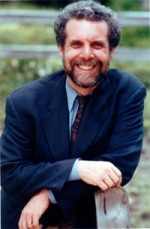
Daniel Goleman is an internationally known psychologist who lectures frequently to professional groups, business audiences, and on college campuses. Working as a science journalist, Goleman reported on the brain and behavioral sciences for The New York Times for many years. His 1995 book, Emotional Intelligence (Bantam Books) was on The New York Times bestseller list for a year-and-a-half; with more than 5,000,000 copies in print worldwide in 30 languages, and has been a best seller in many countries. Goleman’s latest book is Ecological Intelligence: How Knowing the Hidden Impacts of What We Buy Can Change Everything. The book argues that new information technologies will create “radical transparency,” allowing us to know the environmental, health, and social consequences of what we buy. As shoppers use point-of-purchase ecological comparisons to guide their purchases, market share will shift to support steady, incremental upgrades in how products are made – changing every thing for the better. Social Intelligence: The New Science of Human Relationships, was published in 2006. Social intelligence, the interpersonal part of emotional intelligence, can now be understood in terms of recent findings from neuroscience. Goleman’s book describes the many implications of this new science, including for altruism, parenting, love, health, learning and leadership.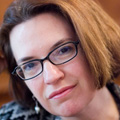
Deborah Ancona is the Seley Distinguished Professor of Management at the MIT Sloan School of Management, and Faculty Director of the MIT Leadership Center.Deborah’s pioneering research into how successful teams operate has highlighted the critical importance of managing outside the team’s boundary as well as inside it. This research has led directly to the concept of X-Teams as a vehicle for driving innovation within large organizations. Her book, X-teams: How to Build Teams That Lead, Innovate, and Succeed was published by Harvard Business School Press in June, 2007.
Deborah’s work has also focused on the concept of distributed leadership, and the development of research-based tools, practices, and teaching/coaching models that enable organizations to foster creative leadership at every level. This work was highlighted in a recent article in the Harvard Business Review, In Praise of the Incomplete Leader, February, 2007.
In addition to X-Teams, Deborah’s studies of team performance have also been published in the Administrative Science Quarterly, the Academy of Management Journal, Organization Science, and the Sloan Management Review. Her previous book, Managing for the Future: Organizational Behavior and Processes (South-Western College Publishing, 1999, 2005) centers on the skills and processes needed in today’s diverse and changing organization.
Deborah received her BA and MS in psychology from the University of Pennsylvania and her Ph.D. in management from Columbia University. She has served as a consultant on leadership and innovation to premier companies such as AT&T, BP,Credit Suisse First Boston, HP, Merrill Lynch, Newscorp, and Vale.
Greg Norris founded and directs Sylvatica, an international life cycle assessment institute which consults onLCA to the UN, governments in the US and abroad, a variety of Fortune 500 companies, industrial associations, and smaller companies, and the non-profit sector. He is Visiting Professor with the Applied Sustainability Center at the University of Arkansas, where he helps the ASC advance the availability of valid and transparent life cycle inventory data, and its application to spur innovation for sustainability. Norris has lead the development of the methods, modeling, and software to implement LCA within the US Green Building Council’s LEED rating system. He is Senior Fellow with GreenBlue, providing LCA guidance to their Sustainable Packaging Coalition, and through the SPC to Wal-Mart and the US EPA. Norris founded Earthster, an open source sustainable information platform, and New Earth, a global fund for community-driven sustainable development. Norris teaches LCA at Harvard, and is Adjunct Lecturer at the Harvard School of Public Health. He is an editor for the International Journal of LCA and the Journal of Industrial Ecology.
A Talk by Aseem Inam
Friday, November 20, 2009 at 6PM
Venue: Simmons Hall (W79) – MPR, (229 Vassar Street, Cambridge MA)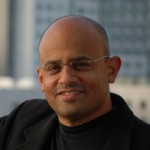
Dr. Aseem Inam has practiced as an architect, urban designer and planner in Los Angeles, Montreal, Mumbai, New Delhi, Paris, St. Louis, and Washington DC. Most recently, he led multidisciplinary teams on urbanist initiatives in the Caribbean, California, and on the U.S.-Mexico border. Early in his career, he created and lead the rural habitat development program in Gujarat, India. His essay, Meaningful Urban Design, received an Honorable Mention for the best writing on the future of American urbanism and was published in the Journal of Urban Design, and his book, Planning for the Unplanned: Recovering from Crises in Megacities, was published by Routledge, New York in 2005. In 2009 at MIT, he received the Excellence in Teaching Award in the Department of Urban Studies and Planning, and was selected as an inaugural Fellow at the Dalai Lama Center for Ethics and Transformative Values.
The talk is co-sponsored by the Residential Scholars Program at Simmons Hall and the Dalai Lama Center for Ethics and Transformative Values, and is supported by a generous contribution from the William R. (1956) and Betsy P. Leitch Endowment.
The paradox of urbanism is that those who are most capable of shaping cities (i.e. urban designers, architects, landscape architects) are among the least effective at transforming them. Urbanists possess the unique combination of being able to directly address the four-dimensional issues of place, creative thinking skills, interdisciplinary approaches to problem solving, and engagement with city-building processes on a daily basis. However, urbanists also view cities as the production of material objects, and their singular obsession with form and space renders them impotent in the face of powerful decision-making processes and larger power structures.
Drawing from the work of American pragmatist philosophers Charles Peirce, William James, John Dewey, and Richard Rorty, the talk outlines a conceptual shift to render the practice of urbanism more relevant and effective in the face of critical urban challenges. The shift consists of viewing the city as flux rather than just as object, focusing on consequences rather than just intentions, and design as a creative political act rather than just a form-making exercise. The talk illustrates the conceptual shift with case studies of the author’s experiments in urbanism in professional practice and pedagogy. In order to make a meaningful difference in the city, urbanists have to view their creative practices as driven by moral choices and consequential impacts.
(Open to: the general public)
![poster-sinnombre[1]](http://thecenter.mit.edu/wp-content/uploads/2012/05/poster-sinnombre1.jpg)
Making its world premiere at the 2009 Sundance Film Festival, Sin Nombre is an epic dramatic thriller from award-winning director Cary Fukunaga.
Seeking the promise of America, a beautiful young Honduran woman, Sayra (Paulina Gaytan), joins her father and uncle on an odyssey to cross the gauntlet of the Latin American countryside en route to the United States. Along the way she crosses paths with a teenaged Mexican gang member, El Casper (Edgar M. Flores), who is maneuvering to outrun his violent past and elude his unforgiving former associates. Together they must rely on faith, trust and street smarts if they are to survive their increasingly perilous journey towards the hope of new lives.
![fukunaga[1]](http://thecenter.mit.edu/wp-content/uploads/2012/05/fukunaga1.jpg)
Co-sponsor: MIT Sloan School of Management
![chisholm[1]](http://thecenter.mit.edu/wp-content/uploads/2012/05/chisholm1-150x150.jpg)
Lee and Geraldine Martin Professor of Environmental Studies
Professor of Biology
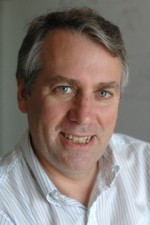
Professor of Atmospheric Science
PAOC Director
Department of Earth, Atmospheric and Planetary Sciences
![edelong[1]](http://thecenter.mit.edu/wp-content/uploads/2012/05/edelong1.jpg)
Professor, Department of Civil and Environmental Engineering and Division of Biological Engineering
![duster[1]](http://thecenter.mit.edu/wp-content/uploads/2012/05/duster1.jpg)
Troy Duster is a Professor of Sociology at New York University. Having received his B.A. and Ph.D. from Northwestern University and M.A. from the University of California, Los Angeles, Professor Duster’s area of research and interest include, sociology of science; sociology of knowledge; deviance and control; sociology of law; race and ethnicity. His fellowships and honors include, 2002 Hatfield Scholars Award; American Sociological Association’s DuBois-Johnson-Frazier Award (5/2001); Social scientist to the National Advisory Commission for The Decade of Behavior – 2000-2001; Member, American Association for the Advancement of Science Ethical; Social Issues Panel, Genetic Therapy Germline Intervention.
![entekhabi[1]](http://thecenter.mit.edu/wp-content/uploads/2012/05/entekhabi1.jpg)
Director, Earth System Initiative
Bacardi and Stockholm Water Foundations Professor in Civil and Environmental Engineering and Earth, Atmospheric and Planetary Sciences
Director, Ralph M. Parsons Laboratory for Environmental Science and Engineering
![edelong[1]](http://thecenter.mit.edu/wp-content/uploads/2012/05/edelong1.jpg)
Professor, Department of Civil and Environmental Engineering and Division of Biological Engineering
![alan-redshirt[1]](http://thecenter.mit.edu/wp-content/uploads/2012/05/alan-redshirt1-150x225.jpg)
Alan Wallace, Ph.D. a scholar and practitioner of Buddhism since 1970, has taught Buddhist theory and meditation throughout Europe and America since 1976. Having devoted fourteen years to training as a Tibetan Buddhist monk, ordained by H. H. the Dalai Lama, he went on to earn an undergraduate degree in physics and the philosophy of science at Amherst College and a doctorate in religious studies at Stanford.
With his unique background, Alan brings deep experience and applied skills to the challenge of integrating traditional Indo-Tibetan Buddhism with the modern world.
In this workshop Dr. Alan Wallace will present methods drawn from the Buddhist contemplative tradition and modern psychology for cultivating emotional balance. Such practices are based on the distinction between hedonic pleasure, which is aroused by pleasant stimuli, and genuine happiness, which stems from what we bring to the world rather than what we get from it. In Buddhist practice, mental balance is cultivated on the basis of an ethical way of life, and it is developed within the broader context of conative, attentional, and cognitive balance. Central to such mental training is the development of attentional and metacognitive skills, which are indispensable for cultivating emotional balance.
Co-sponsor: Brain & Cognitive Science; Prajnopaya Institute & Foundation; The Center for Health Promotion & Wellness at MIT Medical; The Dalai Lama Center for Ethics and Transformative Values at MIT
![CliffordSaron[1]](http://thecenter.mit.edu/wp-content/uploads/2012/05/CliffordSaron1.jpg)
![alan-redshirt[1]](http://thecenter.mit.edu/wp-content/uploads/2012/05/alan-redshirt1-150x225.jpg)
With his unique background, Alan brings deep experience and applied skills to the challenge of integrating traditional Indo-Tibetan Buddhism with the modern world.









